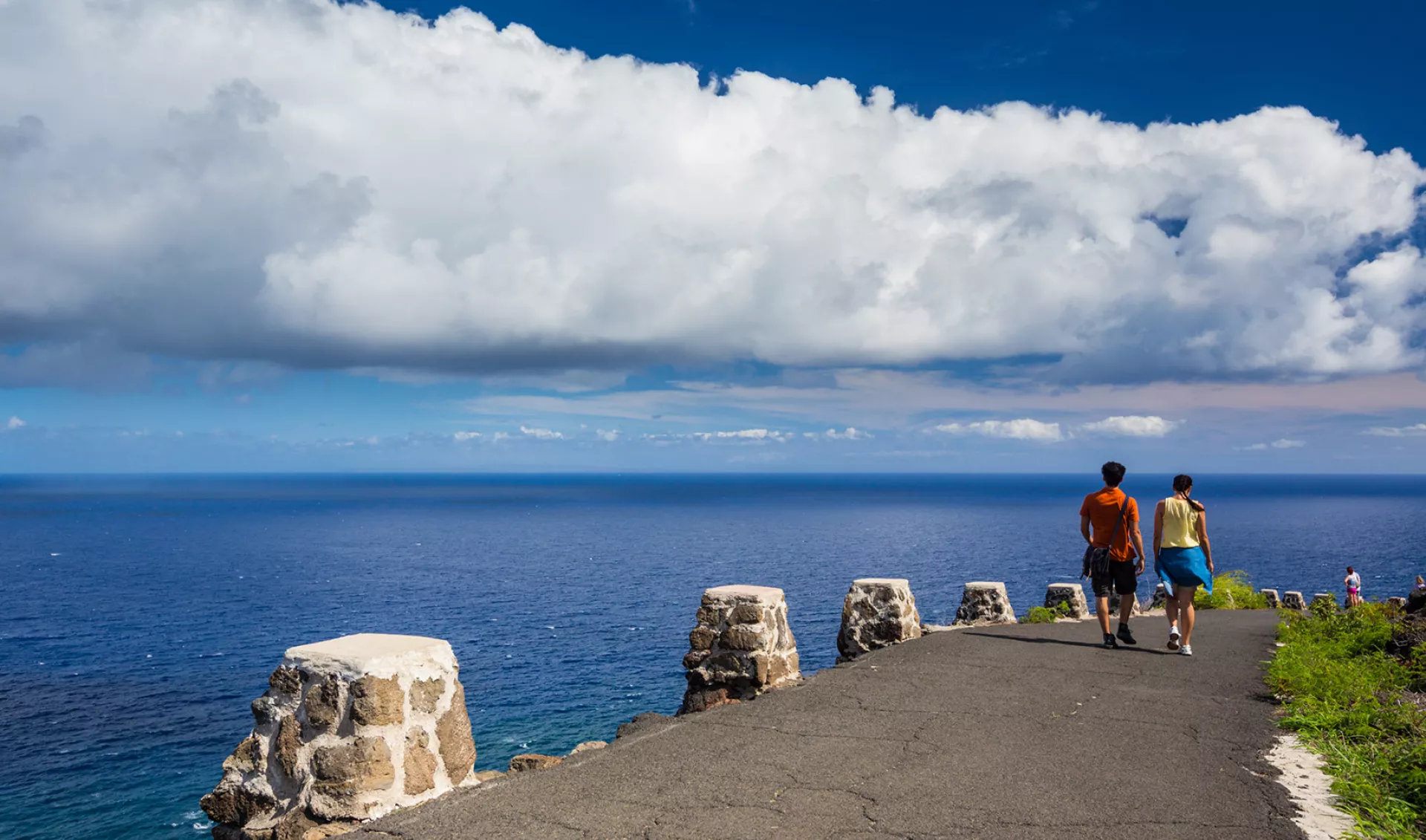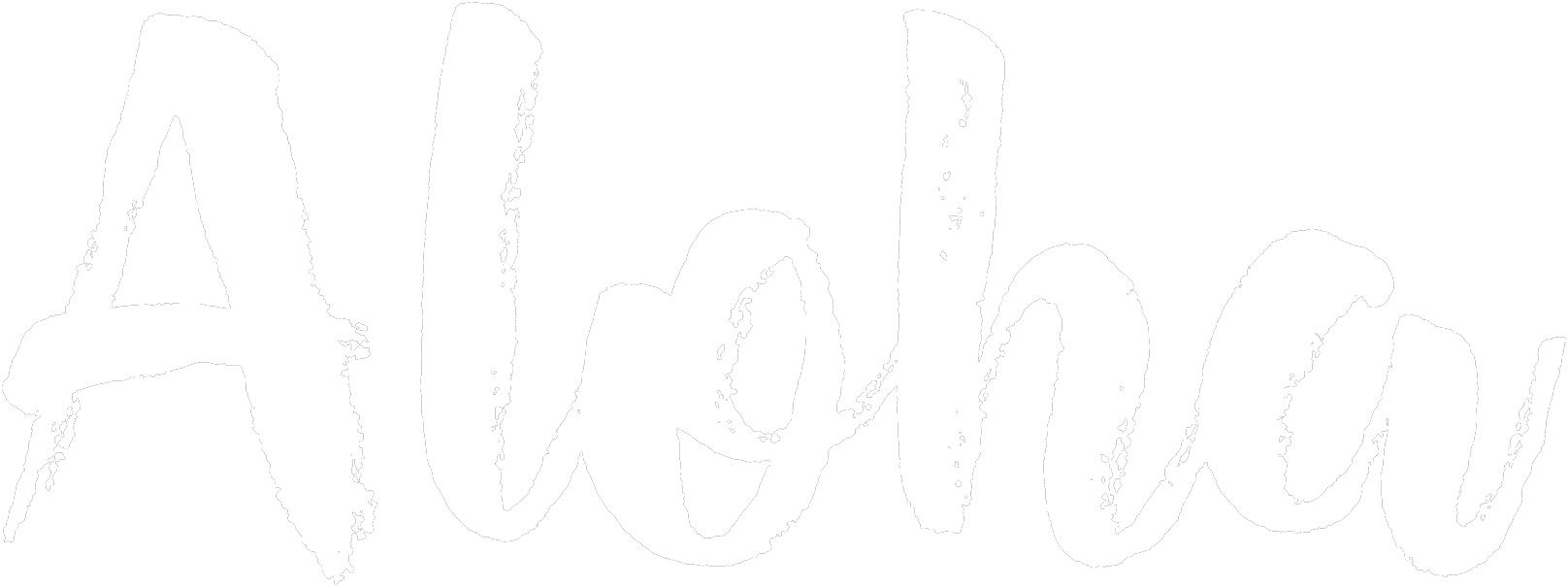
 Maps
Maps
Oʻahu Maps & Geography
Oʻahu is separated into 5 main areas: Honolulu, the North Shore, the Windward Coast, Central Oʻahu and the Leeward Coast. Note that world-famous Waikīkī is actually a neighborhood located in greater Honolulu.
Oʻahu occupies 597 square miles and is the second oldest of the six Islands of Aloha, lying between Kauaʻi and Maui. Oʻahu is made up of two major mountain ranges that were once shield volcanoes that are now extinct. These two mountain ranges – the Waiʻanae range to the west and Koʻolau range to the east – run almost parallel to each other. Over a hundred ridges extend from the spines of each range creating beautiful valleys and stunning mountain vistas.
The Waiʻanae range on the west side, separates Central Oʻahu from the Leeward Coast and is the oldest part of Oʻahu at roughly four million years old. For the most part, the leeward (west) side is considerably warmer and drier than the east. The Koʻolau mountain range spans the length of the island’s eastern coast for about 34 miles from Kahuku in the north to Makapuʻu in the south.
The Koʻolau range separates the Windward Coast of Oʻahu from Central Oʻahu. On the windward (east) side, thousands of years of constant gales have carved beautiful rippling rock faces, near-vertical ridges and precipitous cliffs. You can get a fantastic view of the Koʻolau cliffs from the Nuʻuanu Pali Lookout. Today, the Windward Coast tends to be Oʻahu’s wetter and greener side of the island.
There are several smaller post-shield volcanic outcroppings scattered throughout the island, all of which are extinct. These appear in the form of volcanic cones and heads usually no greater than 1,000 feet high and a mile in diameter. The most famous of these include Lēʻahi (Lēʻahi Head) and Pūowaina craters (home to the National Memorial Cemetery of the Pacific), both popular visitor attractions. Koko Head crater sits on the youngest part of Oʻahu at about 32,000 years old.
Download a PDF driving map of Oʻahu.
View an image file of the Oʻahu map.
Oʻahu occupies 597 square miles and is the second oldest of the six Islands of Aloha, lying between Kauaʻi and Maui. Oʻahu is made up of two major mountain ranges that were once shield volcanoes that are now extinct. These two mountain ranges – the Waiʻanae range to the west and Koʻolau range to the east – run almost parallel to each other. Over a hundred ridges extend from the spines of each range creating beautiful valleys and stunning mountain vistas.
The Waiʻanae range on the west side, separates Central Oʻahu from the Leeward Coast and is the oldest part of Oʻahu at roughly four million years old. For the most part, the leeward (west) side is considerably warmer and drier than the east. The Koʻolau mountain range spans the length of the island’s eastern coast for about 34 miles from Kahuku in the north to Makapuʻu in the south.
The Koʻolau range separates the Windward Coast of Oʻahu from Central Oʻahu. On the windward (east) side, thousands of years of constant gales have carved beautiful rippling rock faces, near-vertical ridges and precipitous cliffs. You can get a fantastic view of the Koʻolau cliffs from the Nuʻuanu Pali Lookout. Today, the Windward Coast tends to be Oʻahu’s wetter and greener side of the island.
There are several smaller post-shield volcanic outcroppings scattered throughout the island, all of which are extinct. These appear in the form of volcanic cones and heads usually no greater than 1,000 feet high and a mile in diameter. The most famous of these include Lēʻahi (Lēʻahi Head) and Pūowaina craters (home to the National Memorial Cemetery of the Pacific), both popular visitor attractions. Koko Head crater sits on the youngest part of Oʻahu at about 32,000 years old.
Download a PDF driving map of Oʻahu.
View an image file of the Oʻahu map.
